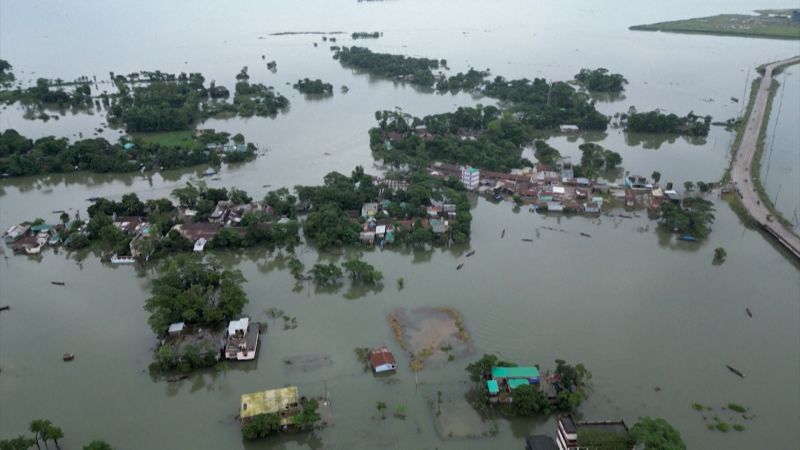
Massive Floods Leave Nearly 2 Million Stranded in Bangladesh’s Second Wave Devastation
The recent onslaught of floods in Bangladesh has brought about unparalleled devastation, catapulting nearly 2 million individuals into severe hardship and despair. With the onset of the second wave of floods in less than a month, the country finds itself grappling with immense challenges on multiple fronts, as infrastructure, livelihoods, and lives are swept away by the relentless force of nature.
One of the most alarming repercussions of these catastrophic floods is the displacement of massive populations, leaving countless individuals stranded without access to basic necessities such as food, shelter, clean water, and healthcare. The magnitude of the humanitarian crisis unfolding in Bangladesh demands urgent attention and concerted efforts on a global scale to provide aid and relief to those who have been affected.
The inundation of floodwaters has not only submerged vast swathes of land but has also disrupted crucial transportation and communication networks, hampering rescue and relief operations in the process. The lack of access to remote and isolated communities only exacerbates the plight of those in need, underscoring the importance of swift and efficient response mechanisms to address the growing humanitarian crisis.
In addition to the immediate humanitarian concerns posed by the floods, there are long-term implications that must be taken into account. The destruction of homes, livelihoods, and infrastructure will have lasting effects on the affected populations, requiring sustained support and resources to facilitate the process of recovery and rehabilitation.
Furthermore, the recurrence of such devastating floods in rapid succession underscores the urgent need for comprehensive and sustainable disaster management strategies to mitigate the impact of natural disasters in the future. Building resilient infrastructure, implementing early warning systems, and fostering community preparedness are essential components of a proactive approach to disaster risk reduction.
As the people of Bangladesh grapple with the aftermath of this calamity, it is imperative for the international community to stand in solidarity with those affected and extend a helping hand in their time of need. The collective efforts of governments, NGOs, and individuals from around the world are crucial in ensuring that the affected populations receive the support and assistance required to navigate this challenging period and rebuild their lives with dignity and resilience.
The unfolding tragedy in Bangladesh serves as a stark reminder of the devastating impact of natural disasters on vulnerable communities and underscores the pressing need for concerted action to address the underlying issues that exacerbate their vulnerability. By coming together in solidarity and compassion, we can make a meaningful difference in the lives of those who are most deeply impacted by these crises, offering hope and support in the face of adversity.
